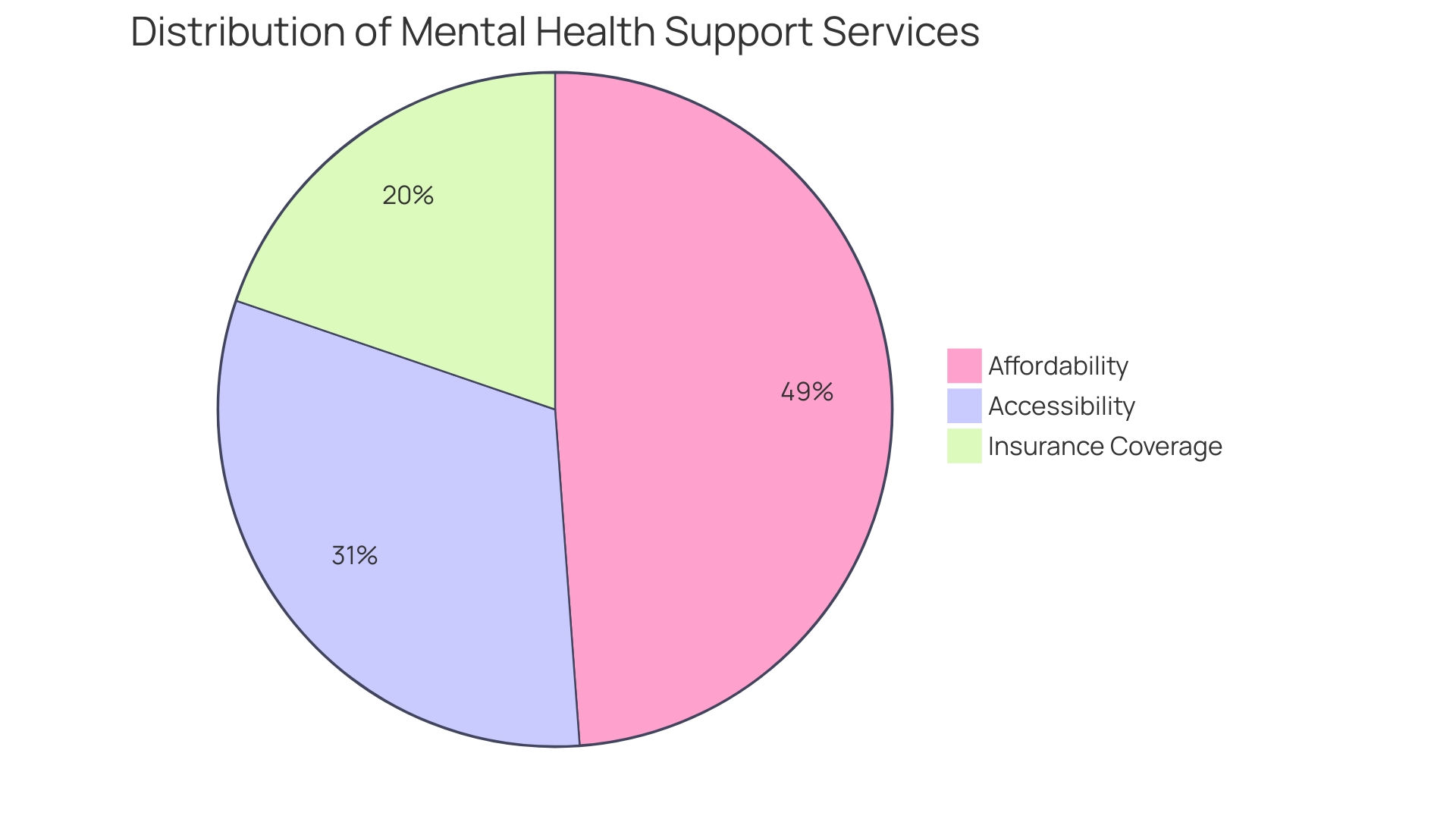Introduction
Aripiprazole, marketed as Abilify, represents a pivotal advancement in the pharmacological management of autism spectrum disorder (ASD). As an atypical antipsychotic, it targets and modulates the activity of neurotransmitters like dopamine and serotonin. These neurotransmitters play a crucial role in neuronal communication, and their dysregulation is often implicated in the behavioral and irritability symptoms characteristic of ASD.
The hierarchical approach to treatment with medications like aripiprazole involves assessing the most pressing issues for the individual, the family, and the care team, then prioritizing treatments that are most likely to yield meaningful improvements.
The integration of such advances into treatment plans is not without its challenges. For many, access to high-quality treatment and a full range of services remains limited. In order to harness the full potential of medications like aripiprazole, there is a need for enhanced training in state-of-the-art pharmacologic treatments, better engagement strategies for patients with severe mental illness, and improved continuity of care.
This underscores the necessity for a supportive treatment infrastructure capable of adopting and maximizing the benefits of new pharmacological treatments.
In this article, we will explore the mechanism of action of Abilify, its FDA approval and clinical studies, its efficacy in treating irritability and behavioral symptoms, its comparison with other medications, dosage and administration guidelines, potential side effects and monitoring, real-life examples of Abilify's effectiveness, individualized treatment plans for autism, and the importance of consulting a healthcare professional for Abilify use. By delving into these topics, we aim to provide guidance and resources to empower Parent Advocates in navigating challenges and ensuring the well-being of their children with autism.
Mechanism of Action of Abilify
Aripiprazole, marketed as Abilify, represents a pivotal advancement in the pharmacological management of autism spectrum disorder (ASD). As an atypical antipsychotic, it targets and modulates the activity of neurotransmitters like dopamine and serotonin. These neurotransmitters play a crucial role in neuronal communication, and their dysregulation is often implicated in the behavioral and irritability symptoms characteristic of ASD. The hierarchical approach to treatment with medications like aripiprazole involves assessing the most pressing issues for the individual, the family, and the care team, then prioritizing treatments that are most likely to yield meaningful improvements.
The evolution of psychopharmacology began with the introduction of chlorpromazine in 1955, which significantly altered the treatment landscape for serious mental illnesses by providing a reliable method to reduce symptoms. Today, aripiprazole is part of this legacy, contributing to the improved quality of care for individuals with neuropsychiatric conditions. The FDA's Center for Drug Evaluation and Research (CDER) emphasizes the importance of innovative drug development, with the approval of new drugs and biological products each year offering fresh therapeutic options and moving healthcare forward.
However, the integration of such advances into treatment plans is not without its challenges. For many, access to high-quality treatment and a full range of services remains limited. In order to harness the full potential of medications like aripiprazole, there is a need for enhanced training in state-of-the-art pharmacologic treatments, better engagement strategies for patients with severe mental illness, and improved continuity of care. This underscores the necessity for a supportive treatment infrastructure capable of adopting and maximizing the benefits of new pharmacological treatments.
FDA Approval and Clinical Studies
Abilify, a medication developed to treat autism spectrum disorder (ASD), stands as a testament to the scientific advancements and rigorous evaluation processes that underpin modern drug approvals. Rooted in a history of psychopharmacology that transformed the treatment of mental health conditions beginning with chlorpromazine in 1955, the journey of Abilify through clinical trials to FDA approval signifies a major step forward for patients with ASD and their families. The FDA's Center for Drug Evaluation and Research (CDER) meticulously assesses the safety and efficacy of new drugs, considering the nuances of the conditions they treat. In the case of Abilify, studies specifically involving children and adolescents with ASD were pivotal in demonstrating the medication's ability to alleviate irritability and enhance social functionality. This approval by the FDA echoes the agency's commitment to public health and the assurance of medication safety, a sentiment underlined by today's stringent standards for direct-to-consumer prescription drug advertising. These standards ensure that vital information about drug side effects is communicated clearly and effectively to patients and caregivers. Janssen's longstanding dedication to neurological science, tracing back to the groundbreaking work of Dr. Paul Janssen, continues to drive innovation in psychiatric care, including treatments for autism. With FDA approval, Abilify joins other essential medicines in providing a new avenue for improving the quality of life for millions of individuals living with neuropsychiatric conditions. The endorsement of Abilify by the FDA, informed by comprehensive data and expert recommendations, offers a beacon of hope for effective management of ASD symptoms and supports the ongoing quest for therapeutic breakthroughs.
Efficacy in Treating Irritability and Behavioral Symptoms
Abilify (aripiprazole) has been acknowledged as a valuable medication in addressing irritability and behavioral challenges in individuals with autism. This therapeutic option has been shown to substantially alleviate symptoms such as aggression, self-harm, and severe temper outbursts. The positive impact of Abilify extends beyond the individual, enhancing the overall well-being of their family members by reducing daily stressors and contributing to a more harmonious home environment. It aligns with the philosophy of equitable mental health care, ensuring that children with autism receive the support they need to participate actively in their educational and social settings. As we continue to pursue advancements in neurological science, it's imperative to focus on treatments that address the diverse needs of those with psychiatric conditions, including autism, ensuring that everyone has the opportunity to thrive within their communities.
Comparison with Other Medications
The treatment landscape for autism has evolved significantly since the mid-20th century, with a deeper understanding of medications that can manage symptoms effectively while minimizing side effects. In the past, options were limited and often came with severe adverse effects, as evidenced by the reliance on drugs like chlorpromazine, which introduced Parkinsonism-like symptoms as a common side effect. Today, the goal is a tailored approach, prioritizing the patient's needs, family considerations, and the treatment team's recommendations. This includes assessing the likelihood of a meaningful response to treatment and weighing the risks associated with any intervention.
Abilify (aripiprazole), for instance, represents a modern choice with a more favorable side effect profile compared to older medications such as risperidone. Patients may experience fewer issues such as weight gain or sedation, which aligns with the hierarchical approach to treatment planning where minimizing risks is a key factor. However, the decision to prescribe any medication must be made in consultation with healthcare professionals, who consider the unique circumstances of each patient. This personalized approach is crucial, as the efficacy of any treatment hinges on the ability to integrate it within a supportive treatment infrastructure, ensuring continuity of care and appropriate management of side effects. It's a reflection of how far psychopharmacology has come since the introduction of chlorpromazine in the 1950s, signifying progress towards more humane and effective treatment options for autism.

Dosage and Administration Guidelines
Determining the appropriate dosage and administration of Abilify for individuals with autism is a nuanced process that requires the expertise of healthcare professionals. This process is not one-size-fits-all; it takes into account the patient's age, weight, and specific symptoms. To achieve the most beneficial outcomes, it's crucial for patients to adhere to the prescribed dosage and schedule meticulously.
Adjustments to the treatment plan may be necessary over time, which underscores the importance of ongoing monitoring. This diligent oversight helps in striking a balance between the therapeutic effects and the minimization of any potential side effects. Such an approach aligns with the hierarchical treatment planning model, which prioritizes issues and addresses them sequentially, focusing on those with a higher likelihood of a positive response.
A collaborative relationship between the patient, their family, and the healthcare team is essential, particularly in discussing the risks and benefits of the treatment. Transparent communication serves as the cornerstone for navigating the treatment journey and ensuring that any changes in the individual's condition are promptly addressed.
The landscape of treatment options for neuropsychiatric conditions is ever-evolving, and staying informed about the latest advancements and infrastructural support systems is vital. Leveraging the latest drug developments effectively requires an infrastructure capable of integrating new treatments and providing comprehensive care.
Therefore, while Abilify might be a promising option for some, its integration into a treatment plan must be approached with care, expertise, and a readiness to adapt to the individual needs of the patient.

Potential Side Effects and Monitoring
Understanding the implications of medication for autism requires a comprehensive approach, considering both the potential benefits and the risks involved. For instance, medications like Abilify, used to manage symptoms of autism, have been known to cause side effects that vary among individuals. These may range from drowsiness and restlessness to increased appetite and gastrointestinal issues. While not everyone will experience these adverse effects, and they are often controllable, vigilance is key.
Continual oversight by healthcare providers is vital in tracking and mitigating any side effects that arise. This vigilant approach is echoed in the broader context of psychiatric medication, where data from a Danish study encompassing 1.5 million people indicated that the majority of the population will be diagnosed with a mental illness and medicated at some point, often leading to long-term socioeconomic challenges, such as reduced income and higher unemployment rates.
Moreover, the study highlighted the risk of psychiatric drugs causing brain dysfunction and even permanent damage, raising concerns about their long-term use. In light of such findings, the importance of open dialogue between parents, caregivers, and medical professionals cannot be overstressed. It ensures that the benefits of the medication are balanced against its risks, safeguarding the well-being and future prospects of individuals with autism.

Case Studies: Real-Life Examples of Abilify's Effectiveness
Abilify, a medication with considerable history in treating various psychiatric conditions, has shown promising results for individuals with autism spectrum disorder (ASD). Drawing from the extensive experience in psychopharmacology since the mid-20th century, its application to autism represents a continuation of the evolution in treating complex mental health conditions. The medication's effectiveness is not merely anecdotal; it is supported by robust data and expert evaluation. For instance, the FDA's rigorous assessment processes, which involve expert advisory bodies, have recognized the safety and efficacy of such treatments. Moreover, the advent of advanced machine-learning models like AutMedAI, which can identify autism in children with high accuracy, highlights the potential for personalized medicine and targeted treatment approaches. Abilify's role in improving behavioral symptoms and enhancing overall functioning in individuals with ASD underscores the medication's significance in autism care. Parents seeking effective treatments can find reassurance in the concrete examples of improved quality of life for those with ASD and their families, as mirrored in the experiences shared by healthcare providers.
Individualized Treatment Plans for Autism
Understanding that each person with autism is distinct, treatment approaches must be as unique as they are. Medications like Abilify may be integrated into personalized treatment plans that also encompass behavioral therapies and educational interventions. Collaboration with healthcare professionals, therapists, and educators is key to developing a comprehensive strategy that meets the broad spectrum of needs for individuals with autism. In the pursuit of optimal care, it's important to consider innovative and supportive methods such as neurofeedback, which has been shown to significantly improve cognitive abilities, mood regulation, and other autism-related challenges. The statistics are stark: up to 30% of individuals with autism also experience epilepsy, making it crucial to address their needs holistically. The recent guidelines by the Council of Autism Service Providers underscore the importance of quality in treatments like Applied Behavior Analysis (ABA), reinforcing the need for tailored, high-standard care plans. Moreover, recognizing the mental health and equity of children with autism as fundamental, we must ensure that their participation in society is supported, reducing stressors and empowering caregivers with necessary resources. This aligns with the mission of organizations like The Autism Community in Action (TACA), which emphasizes early and accurate diagnosis to improve outcomes. With a commitment to personalized care, we can pave the way for a fair and inclusive society for individuals with autism.

Consulting a Healthcare Professional for Abilify Use
Navigating the decision to utilize medications like Abilify for autism spectrum disorders (ASD) requires a comprehensive approach, focusing on the individual's unique needs and circumstances. Healthcare professionals, equipped with a deep understanding of ASD and its treatments, are vital in assessing the potential benefits and risks specific to each person. They consider a range of factors, including the individual's symptoms, medical background, and the likelihood of a positive response to the medication.
Considering the patient's and family's priorities, healthcare providers can tailor treatment plans that align with the desired outcomes, always mindful of the medical and personal risk tolerances involved. This personalized approach is supported by the expertise of behavior analysts and medical professionals who bring years of clinical experience to the table, ensuring coordinated care that adheres to best practices.
Open dialogue between caregivers and medical professionals is essential for successful treatment. Medical visit notes, for instance, provide a transparent record of discussions, care plans, and follow-up actions, which are crucial for ongoing support and monitoring. This transparency fosters trust and allows for informed decision-making, ensuring that the chosen interventions are understood and agreed upon by all stakeholders. The ultimate goal is to support the well-being of those with autism, helping them to access the resources needed to thrive.
Conclusion
Abilify (aripiprazole) is a significant advancement in managing autism spectrum disorder (ASD) by targeting neurotransmitters involved in behavioral and irritability symptoms. Integrating these advancements into treatment plans is challenging due to limited access to high-quality care. Enhanced training, better engagement strategies, and improved continuity of care are needed to fully harness the benefits of medications like Abilify.
Abilify's FDA approval and clinical studies demonstrate its efficacy in alleviating irritability and enhancing social functionality in individuals with ASD. This approval reflects the FDA's commitment to medication safety and offers hope for managing ASD symptoms effectively.
Abilify has shown efficacy in treating irritability and behavioral symptoms, reducing aggression and improving overall well-being for individuals and families. It aligns with the philosophy of equitable mental health care, ensuring active participation in educational and social settings.
Comparing Abilify with other medications, it offers a more favorable side effect profile, minimizing risks like weight gain or sedation. Prescribing any medication should involve consultation with healthcare professionals, considering each patient's unique circumstances.
Determining the appropriate dosage and administration of Abilify requires expertise. Adherence to prescribed dosage, ongoing monitoring, and collaboration between the patient, family, and healthcare team are crucial for optimal outcomes.
Understanding the implications of medication for autism involves considering both benefits and risks. Vigilance in tracking and mitigating side effects is vital, and open dialogue with medical professionals ensures informed decision-making.
Real-life examples highlight Abilify's effectiveness, improving the quality of life for individuals with ASD. Individualized treatment plans, including Abilify, behavioral therapies, and educational interventions, are essential. Collaboration with healthcare professionals is crucial for comprehensive strategies.
Using medications like Abilify for ASD requires a comprehensive approach guided by healthcare professionals. Open dialogue fosters trust and ensures that chosen interventions are understood and agreed upon by all stakeholders, supporting the well-being of individuals with autism.
In conclusion, Abilify represents a significant advancement in managing ASD symptoms. Collaboration, personalized treatment plans, and ongoing monitoring are crucial for optimal outcomes and supporting the well-being of individuals with ASD.




